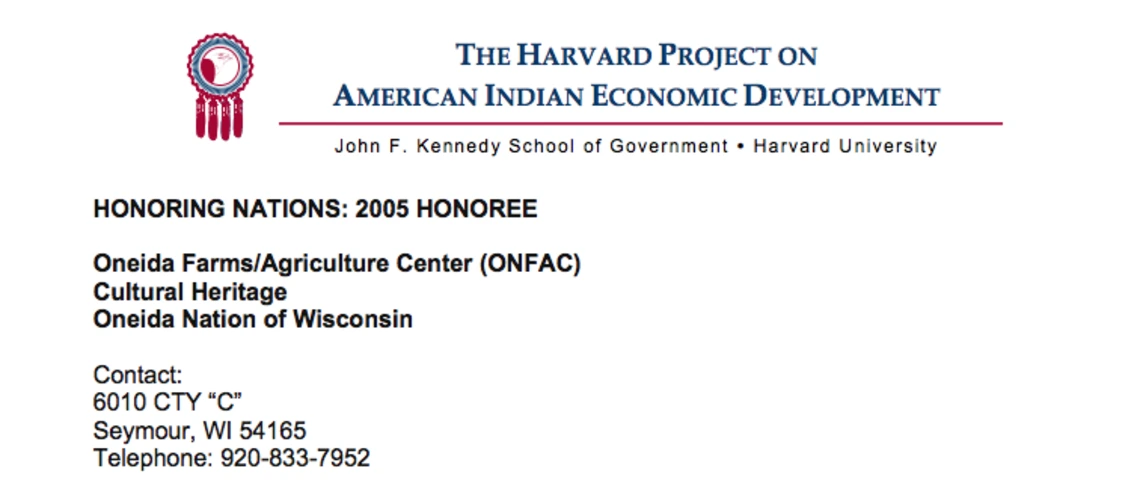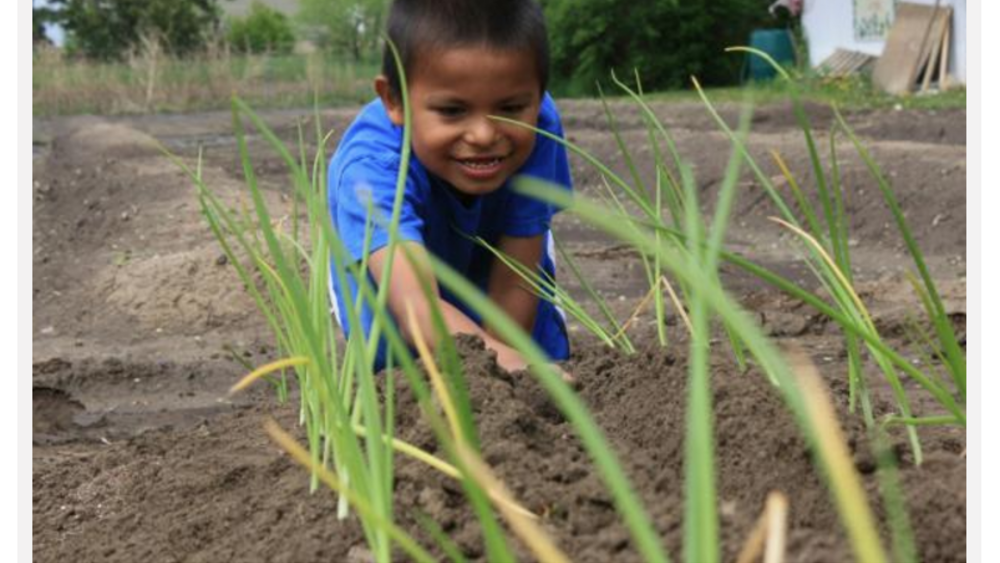In the 1820s, a portion of the Oneida people of New York moved to Wisconsin, where they took up their accustomed practices as farmers. Over the next hundred years, the Oneida Nation lost nearly all its lands and much of its own agrarian tradition. In 1978, the Oneida Nation of Wisconsin established the Oneida Nation Farms, beginning with only 150 acres of land and 25 head of cattle. Today, the operation includes over 8,000 acres of agricultural and conservation lands; 400 cattle; 100 buffalo; and major crops such as soybeans and corn, and diverse produce such as apples, strawberries, raspberries, blackberries, snap beans, squash, and pumpkins. Oneida Nation Farms is a successful, profitable enterprise based on sustainable development, environmental stewardship, respect for the value of whole foods, and a healthy diet for Oneida citizens. Founded on the philosophy that the current generation must consider the impact of its actions on the next seven generations, Oneida Nation Farms nourishes the Oneida people in multiple ways.
Additional Information
"Oneida Nation Farms". Honoring Nations: 2005 Honoree. Harvard Project on American Indian Economic Development, John F. Kennedy School of Government, Harvard University. Cambridge, Massachusetts. 2006. Report.



